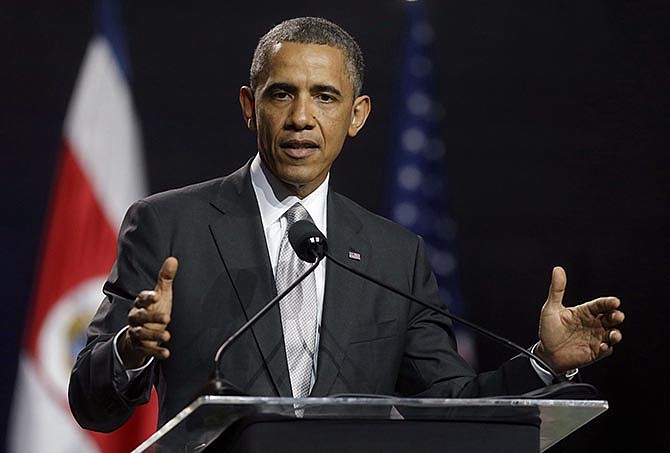WASHINGTON (AP) - One year ago, President Barack Obama was barreling toward airstrikes in Syria when he abruptly announced that he first wanted approval from congressional lawmakers. The move threw his policy into confusion and the strikes were eventually scrapped.
Now, as Obama again contemplates military action in Syria, the White House is suggesting it may not be necessary to get a sign-off from Congress. While cautioning that Obama has made no final decisions, officials say there is a difference between last year's effort to strike Syria's government in retaliation for chemical weapons use and a bombing campaign against Islamic State militants that is now under consideration.
"The situation a year later is markedly different," White House spokesman Josh Earnest said when asked whether Obama would again seek congressional authorization. "What we're talking about now is confronting a terrorist group that has sought safe haven in Syria. This is a group that poses a threat to Americans in the region and could potentially, down the line, pose a broader threat to American interests and our allies around the globe."
Earlier this month, Obama authorized U.S. airstrikes against Islamic State targets in Iraq. The militants have been moving with ease between Iraq and Syria, effectively blurring the border between the neighboring nations.
Thus far, there has been little clamor among congressional leaders for Obama to seek approval from Capitol Hill before proceeding with military action in Syria. Congress ultimately balked at Obama's request for a vote last year, contributing to the president's decision to pull back on the strikes. The White House said it also abandoned plans to take military action after Syria agreed to give up its chemical weapons stockpiles.
This time, with the midterm elections just over two months away, lawmakers may be even less inclined to take a politically risky vote on military action.
"I see no reason to come to Congress because, if he does, it'll just become a circus," Rep. Steve Cohen, D-Tenn., said this week.
There are some notable exceptions in both parties. Republican Sen. Bob Corker of Tennessee, a frequent critic of the administration's foreign policy, has said Congress should "certainly" authorize any military action in Syria. Sen. Tim Kaine, a Virginia Democrat and White House ally, has also called for a vote on the president's broader strategy for going after the Islamic State.
"I am calling for the mission and objectives for this current significant military action against ISIL to be made clear to Congress, the American people, and our men and women in uniform," said Kaine, using one of the acronyms for the militant group. "Congress should vote up or down on it."
Obama's surprise decision-making on Syria last year underscores the degree to which the dynamics in Washington could quickly flip. The president could ultimately decide to seek congressional approval once again, and more lawmakers could demand that he take that step.
Legal experts say Obama would have the authority to launch strikes in Syria without congressional approval, though they say his standing would be strengthened if the scope and duration of the attacks were limited.
"The Constitution gives only Congress the power to initiate war," said Ilya Somin, a law professor at George Mason University. "You could argue that a small number of strikes over a small number of days does not constitute a war."

